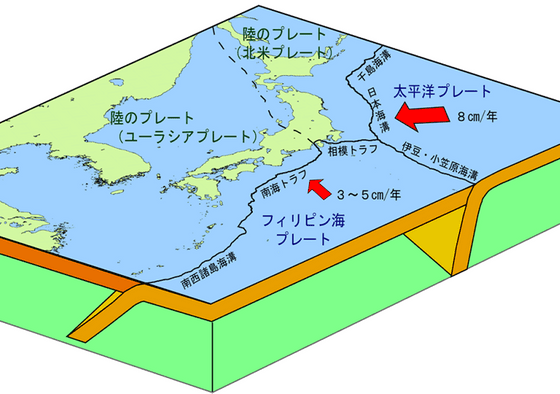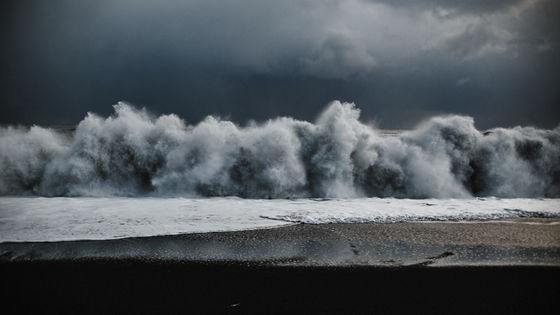Experts warn that climate change will intensify earthquakes. Why does climate change increase the incidence of earthquakes?

Climate change is a crisis not only because it changes the weather, but also because it intensifies disasters such as floods and storms, and has unexpected effects such as
Will we have more earthquakes because of climate change? | Live Science
https://www.livescience.com/planet-earth/earthquakes/will-we-have-more-earthquakes-because-of-climate-change
According to Live Science, among earthquakes, which are difficult to predict and often devastating, 'plate earthquakes' that occur in the plates that make up the Earth's crust and upper mantle are particularly dangerous.
Heat from deep within the Earth causes the plates to move and rub against each other by an average of 1.5cm per year, building up energy that can suddenly move the plates and release a burst of seismic energy.

By Japan Meteorological Agency
As climate change worsens, these earthquakes will become more frequent and stronger, says John Cassidy, a seismologist at the University of Victoria in Canada.
Climate change causes earthquakes because, when glaciers melt due to global warming, the land beneath them rises. The principle is similar to when a child in a swimming pool pushes a kickboard under the water and then releases it. The kickboard remains underwater as long as pressure is applied from above, but when the pressure is released it quickly rises toward the surface.
Similarly, when a glacier melts rapidly, it creates a large pressure difference that can cause previously dormant faults to suddenly move, which can lead to major earthquakes.

Even more serious than earthquakes caused by melting glaciers are earthquakes caused by rising sea levels, because as sea levels rise, the water pressure on the ocean floor also increases, which in turn puts more pressure on faults along the coast.
'Some fault lines near the coast are near the end of their seismic cycle, which means that even a small increase in pressure could speed up the earthquake cycle,' said Marco Bonhof, a geophysicist at the Free University of Berlin in Germany. 'That change could be enough to trigger earthquakes in many places.'
According to Bonhof, even if humanity were to immediately stop emitting greenhouse gases, it could take up to 1,000 years for sea levels to stop rising, and during that time, he predicts, the cycle of major coastal earthquakes would steadily increase.
Because proving such predictions can take centuries, scientists like Bonhof base their work on existing models: For example, a 2023

It's not proven that the same thing happens in the ocean, but Cassidy emphasizes that climate change will make large earthquakes even more dangerous. Specifically, rising sea levels will allow tsunamis to reach further inland, and rising ocean temperatures will increase precipitation, which will increase the risk of landslides caused by earthquakes. In addition, if water accumulates in the ground due to rainfall, earthquake tremors will be amplified.
Whether these fears come to fruition remains to be seen. 'This is an important topic of research, and we'll likely learn more about it in the coming months and years,' Cassidy said. 'But whatever we find out, it's not good news.'
Related Posts:
in Science, Posted by log1l_ks







